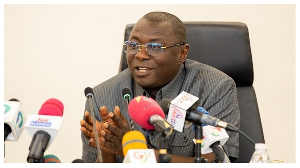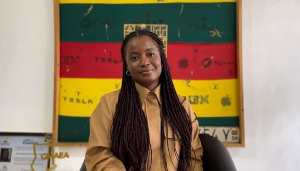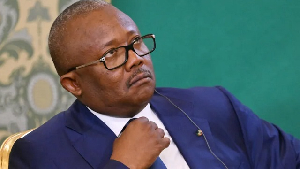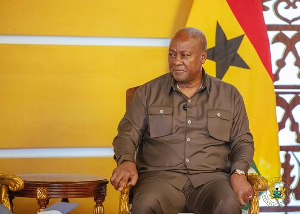Accra, March 11, GNA - General Emmanuel Alexander Erskine, a former Commander of the United Nations Interim Forces In Lebanon (UNIFIL) has stated that any information to any soldier on peacekeeping mission to receive reduced allowance which would be reimbursed later at home was not true.
"Take it from me that it is not true, General Erskine, a long-time UNIFIL Commander said at a public hearing of the National Reconciliation Commission (NRC) on Thursday.
Gen Erskine, now a member of the NRC, was reacting to a statement by an Ex-Warrant Officer II, who alleged that one Lt-Col Lowiah told them in Lebanon that they were to receive 15 dollars a day instead of 18 dollars with a promise that the difference would be refunded to them when they returned home.
Gen Erskine said he was in the mission area between December 1983 and May 1984 during which the promise was supposedly made and insisted that it was not true.
Ex-WO II Kofi Hene had prayed the Commission to recommend for him the payment of 520 dollars, which he said was the sum total of his slashed allowance to be paid him for serving in "Ghanbatt 21" for the six-month period.
The ex-soldier said he waited until he went on retirement before demanding the refund in order to avoid being victimised.
Gen Erskine stated that problems of slashing troops' allowance became an option that was adopted by some contributing countries when the UN did not have enough money to advance to them.
He said the option was either to withdraw the troops or reduce their daily allowance to make it possible to pay them until remittances were ready.
Gen Erskine said the Commission was working on another case involving the failure of Ofori Electronics, a Ghanaian company through which soldiers on peacekeeping mission in Lebanon were ordering consumable goods, to deliver items worth 235 dollars ordered and paid for by ex-WO Hene.
Another Witness, retired Staff-Sergeant Safo Martin, also told the Commission that he did not receive 576 dollars worth of items he had ordered through Ofori Electronics. He mentioned the items as a refrigerator, four full pieces of cloth, 13 packets of iron sheets and a tabletop cooker.
Mr Collins Alhassan, a student of Kumasi Polytechnic also told the NRC that in 1987 soldiers took his father, Mr James Nsiah, to Sunyani on three occasions for interrogations but he never returned after the third visit.
He said his father was a Border Guard and was stationed at Bodan in the Brong Ahafo Region where he was working before he disappeared. The Witness said his mother died two years after his father's disappearance adding that he and his siblings were left with nobody to look after them.
He said his father was taken away because he asked his landlord, one Opanyin Kwame Buor, who was driving during curfew hours not to pay a bribe being demanded by the soldiers when he was arrested.
Mr Alhassan said according to the landlord, one Corporal Berko seized his car and asked him to pay some money for breaking a curfew. He said three days later the soldiers came for his father and took him to Sunyani, adding that he returned after the first two visits but never returned after the third.
Members of the Commission counselled Mr Alhassan not to let his past experience affect his studies and that he should help them to unravel the mystery surrounding his father's disappearance.
General News of Thursday, 11 March 2004
Source: GNA
















